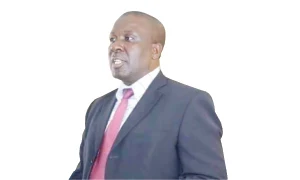1,500 PARTICIPANTS PARTICIPATE AT THE 2025 WORLD SKILLS AFRICA COMPETITION IN LIVINGSTONE
More than 1,500 participants from across Africa are expected
to compete in 20 skills at the World Skills Africa Competition which Zambia
will host in Livingstone in April 2025.
Zambia will be hosting the World Skills Africa Competition
2025 in Livingstone from 7th to 12th April 2025. This prestigious event aims to
showcase the skills and talents of participants across various categories. With
support from the Ministry of Technology and Science and the President of
Zambia, World Skills Zambia is working closely with World Skills International
(WSI) and AUDA-NEPAD to ensure the successful delivery of the competition.
Beyond the event, the competition venue at the Livingstone Institute of
Business and Engineering Studies (LIBES) will serve as a Centre of Excellence
for up skilling trainers in Zambia and potentially beyond.
The competition will feature a range of skills, including
Information Network Cabling, Mechanical Engineering CAD, Welding, Wall and
Floor Tiling, Plumbing and Heating, Electrical Installations, Bricklaying,
Joinery, Carpentry, Jewellery, Hairdressing, Beauty Therapy, Fashion
Technology, and more. It’s an exciting opportunity for Zambian students to
demonstrate their abilities and contribute to the growth of the hospitality
sector and related industries.
Permanent Secretary in the Ministry of Technology and
Science Eng. Dr Brilliant Habeenzu- PS Ministry Of Technology And Science. says
the hospitality and transport sectors in the tourist capital are expected to
cash in from the five day competition.
Speaking during the commemoration of the United Nations
Skills Day and opening of the National Skills Competition in Lusaka, Dr.
Habeenzu said Zambian students will compete in all 20 categories.
Dr. Habeenzu said the event will help the hospitality sector
and other related industries to provide services for the 1,500 participants who
will be competing at LIBES.
He added that skills development is at the core of
government agenda as it provides an opportunity for youths to gain knowledge on
how they can survive and earn a living.
Dr. Habeenzu urged Zambian participants to exhibit good
behavior and compete favourably to make the country proud.
And World Skills Zambia Programme Manager Precious Lisulo
said the local secretariat is doing everything possible to ensure that Zambia
reaps medals at the World Skills Africa Competition.
Ms. Lisulo, who is also Acting Director of Vocational,
Education and Training in the Ministry of Technology and Science, said a lot of
work is being put in place to ensure that Zambian students are prepared to
compete against their counterparts from across Africa next year.
She said a team of experts has already been identified and
trained to mentor Zambian participants as they prepare to take part.




.jpg)










